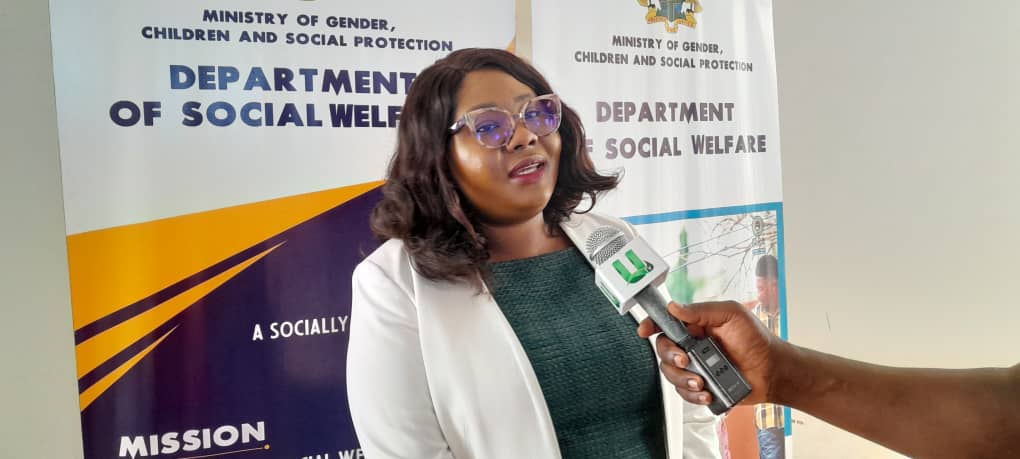By Eunice Hilda A. Mensah
Accra, Dec.05, GNA – The Ministry of Gender, Children and Social Protection (MoGCSP) with support from the Department of Social Welfare (DSW), has inaugurated the “Child Justice Committee” in Accra to protect and promote the rights of children nationwide.
The Committee, with support from UNICEF, has a common goal of upholding the rights of children and ensuring the effective rehabilitation and reintegration of children into society.
Its objectives are to coordinate the implementation of laws and policies on child justice, ensure that all children in conflict with the law have access to justice and are treated fairly and humanely, and promote the rehabilitation and reintegration of children who have been involved in crime.
They also aim to develop and implement policies and programmes to prevent Juvenile crime and raise awareness of laws and policies on child justice and the rights of children in conflict or contact with the law.
Their task is to develop and implement a national plan of action on child justice, monitor and evaluate the implementation of the Act, and identify and address challenges in the implementation of the Act.
The Committee is also expected to provide advice and guidance to the government on matters relating to child justice and review and support the DSW plans on child justice.
Mrs Comfort Asare, Director, DSW, in a speech read on behalf of the Ministry’s Chief Director, said the Ghana Juvenile Justice system comprised of the processes and procedures for handling juveniles, who were in contact or conflict with the law and needed care and protection.
Ghana had developed a vigorous legislative and policy framework that protected and promoted child rights and juvenile justice, she said.
Despite the excellent legislative framework and current Juvenile Justice protocols, she said, State Organisations and Departments tasked with ensuring an efficient administration of Juvenile Justice were confronted with significant challenges.
“It is our collective responsibility to ensure that our systems are designed to protect, rehabilitate, and empower young people who have come into contact and conflict with the law.
“Distinguished Guests, we must recognise that child justice is not merely a legal matter; it is a social, economic, and moral imperative. It reflects our values as a society and our commitment to the well-being of all children, regardless of their circumstances. We must, therefore, work together to strengthen our Juvenile Justice System,” she said.
Mrs Francisca Oteng Mensah, the Deputy Minister of MoGCSP, said correction centres had challenges such as a lack of resources to carry out duties efficiently.

With the relevance and expertise of the Committee, she said: “I have no doubt that you will carry out your duties in the interest of the country.”
Mrs Mensah cautioned parents and caregivers, who sent their children to beg for alms on the streets to desist from the act and enrol them in school, which she said was their right.
The Committee is composed of representatives from the MoGCSP, DSW, Child Protection Specialist – UNICEF, Attorney General’s Office, Ministry of the Interior, Prosecutor in the Juvenile Court, the Domestic Violence and Victim Support Unit, Judicial Service, and Department of Children.
Others are from the Human Trafficking Secretariat (MoGCSP), Ghana Immigration Service, Commission on Human Rights and Administrative Justice, NGO Coalition on the Rights of Children, Local Government Service, Judicial Police, Juvenile Court Judge, Ghana Police Service, Head of the Girls and Boys Remand and Correctional Centre and the Officer in Charge, Senior Boys Correctional Centre – Ghana Prisons Service.
GNA